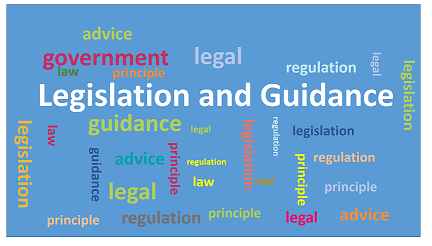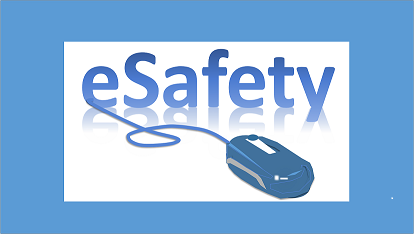Safeguarding News April 2023
'Hot on the heels' of the celebration of King Charles III's Coronation on May 6th and the 'Big Help Out', a national day of volunteering on May 8th, we have another set of dates for the diary. 1st to 7th June 2023 marks Volunteers' Week.
Volunteers’ Week 2023 has the theme 'Celebrate and Inspire' and is a chance to highlight the diversity and strength of volunteering and to show the variety of ways in which people can volunteer. It is designed to encourage people to be the change they want to see.
Remember to share what you’re celebrating using #VolunteersWeek
NCVO's Volunteers’ Week 2023 resources
Now let's take a look back at the safeguarding highlights from April 2023
Our Safeguarding Rapid Review Service is incredibly popular and demand for this service is high. If you are considering reviewing your safeguarding arrangements this service could prove invaluable.
Our latest training schedule is listed below and feel free to share this email with your colleagues and they too can join our newsletter database.
To sign up simply click here.
Services Update
SAFEcic is also accepting many more bookings for its face to face safeguarding training and audit services. There is also a packed calendar of blended learning events available to book for your organisation. The courses are a very cost effective way of training your staff and volunteers.
SAFEcic Blended Learning Training Calendar
Leading on Child and Adult Safeguarding
Safeguarding Training, Leading on Child and Adult. Online course plus Zoom
Thu 29 June 2023
10:30 - 12:00 GMT
Safeguarding Training, Leading on Child and Adult. Online course plus Zoom
Tue 11 July 2023
10:30 - 12:00 GMT
Safeguarding Training, Leading on Child and Adult. Online course plus Zoom
Wed 9 August 2023
10:30 - 12:00 GMT
Safeguarding Training, Leading on Child and Adult. Online course plus Zoom
Wed 20 September 2023
10:30 - 12:00 GMT
Safeguarding Training, Leading on Child and Adult. Online course plus Zoom
Wed 10 October 2023
10:30 - 12:00 GMT
Safeguarding Training, Leading on Child and Adult. Online course plus Zoom
Wed 22 November 2023
10:30 - 12:00 GMT
Safeguarding Training, Leading on Child and Adult. Online course plus Zoom
Tue 12 December 2023
10:30 - 12:00 GMT
Standard Child and Adult Safeguarding
Safeguarding Training, Standard Child and Adult. Online Course plus Zoom
Tue 4 July 2023
10:30 - 12:00 GMT
Safeguarding Training, Standard Child and Adult. Online Course plus Zoom
Mon 18 September 2023
10:30 - 12:00 GMT
Safeguarding Training, Standard Child and Adult. Online Course plus Zoom
Thu 30 November 2023
10:30 - 12:00 GMT
Safeguarding: Trustees’ legal responsibilities
Safeguarding: Trustees' legal responsibilities. Online Course plus Zoom
Wed 21 June 2023
10:00 - 11:30 GMT
Safeguarding: Trustees' legal responsibilities. Online Course plus Zoom
Thu 20 July 2023
10:00 - 11:30 GMT
Safeguarding: Trustees' legal responsibilities. Online Course plus Zoom
Thu 21 September 2023
10:00 - 11:30 GMT
Safeguarding: Trustees' legal responsibilities. Online Course plus Zoom
Tue 21 November 2023
10:00 - 11:30 GMT
Safer Recruitment Training. Online course plus 2 Hr Live Online training
Wed 24 May 2023
10:00 - 12:00 GMT
Safer Recruitment Training. Online course plus 2 Hr Live Online training
Wed 12 July 2023
10:00 - 12:00 GMT
Safer Recruitment Training. Online course plus 2 Hr Live Online training
Tue 19 September 2023
10:00 - 12:00 GMT
Safer Recruitment Training. Online course plus 2 Hr Live Online training
Wed 1 November 2023
10:00 - 12:00 GMT
Safer Recruitment Training. Online course plus 2 Hr Live Online training
Thu 7 December 2023
10:00 - 12:00 GMT
SAFEcic's free hub resources by setting are available through the SAFEcic.co.uk main menu. Alternately you can bookmark the links below:
Education | Dental | Charities | GP & Primary Medical Services | Fath Groups | Entertainment & Leisure | Working Overseas |
Guidance
Prosecutors focus on ‘love-bombing’ and other manipulative behaviours when charging controlling offences
Updated guidance from the Crown Prosecution Service (CPS) emphasises the need for prosecutors to closely scrutinise the actions of a suspect, who can often take steps to disrupt or mislead criminal proceedings.
The CPS prosecution guidance on controlling and coercive behaviour and stalking or harassment has been updated and advises prosecutors about the different tactics a suspect can use, including ‘love-bombing’ which is where they will intermittently carry out loving acts (e.g. sending flowers) between other behaviours to confuse the victim and gain more control.
Once an investigation is underway, a suspect may then make counter-allegations of abuse, argue their actions were in self-defence, actively mislead the investigation with their behaviour and even apply for non-molestations orders or ask courts to vary restraining orders to exert more control over the victim.
By looking at the evidence surrounding a suspect’s actions, prosecutors can help inform and support investigators in building a robust case. This evidence will also enable an accurate assessment of the risk, so that the necessary support can be put in place for a victim.
Prosecutors are asked to consider how an offender’s actions have impacted a victim’s behaviour when making a charging decision as people may respond to abuse in several ways.
When assessing the impact of offending, the guidance sets out how prosecutors should look for evidence showing changes a victim has made to their lifestyle.
The updated guidance emphasises the importance of considering stalking, harassment and controlling or coercive behaviour alongside other available charges, in that order, when dealing with conduct which overlaps these offences. This is because stalking or harassment offences have greater sentencing powers and for stalking there’s also the ability to apply for additional protective orders by way of Stalking Protection Orders.
For example, monitoring a person’s movement or social media may constitute both stalking and controlling or coercive behaviour, while controlling who they meet and when they leave the house may constitute both harassment and controlling or coercive behaviour.
The changes in the updated prosecution guidance build on wider efforts to make lasting changes for victims of these offences. This year, the CPS started work with the police on developing a joint justice plan to improve the collective handling of domestic abuse cases which is due to be published at the end of the year..
Inquiry and Review Reports

1. Experts demand major overhaul of safeguarding system to protect children with disabilities from abuse at children’s homes
The Child Safeguarding Practice Review Panel has published recommendations to improve the care, welfare and outcomes for children with disabilities and complex health needs living in residential settings.
Last October, the panel published a review into very serious abuse to a significant number of children with disabilities and complex health needs at 3 residential special schools registered as children’s homes (Fullerton House, Wilsic Hall and Wheatley House, located in Doncaster and operated by the Hesley Group). Looking at the experiences of 108 children and young adults, it found a culture of abuse and harm, including evidence of physical abuse and violence, neglect, emotional abuse and sexual harm.
The leadership and management in the 3 settings was inadequate and actively concealed incidents of abuse from authorities. When there were complaints and concerns about the settings from whistle blowers and parents, these were not sufficiently brought together by authorities. Therefore, the safety net that should have protected the children was ineffective.
The phase 2 report draws on the learning from what happened to those children and sets out a case for change in the quality, oversight and regulation of all residential settings for children with disabilities and complex health needs. The recommendations urge government departments to work together to transform the education, health and care offer so that children with disabilities and complex health thrive and are supported to achieve.
The panel is making nine recommendations for government departments, inspectorates and NHS England that aim at ensuring children with learning disabilities, autism and complex health needs have the support they need to thrive.
These include:
- the Department for Education and Department of Health and Social Care should develop statutory guidance to require local authorities and integrated care boards (ICBs) to jointly commission safe, sufficient and appropriate provision for children with disabilities and complex health needs
- the government should commission an integrated strategy for the development of the children’s workforce in residential settings - this should include training on the appropriate use of physical restraints and restrictive interventions and their authorisation
- the government should ensure all children with disabilities and complex health needs have access to independently commissioned, non-instructed advocacy
- systems for the early identification of safeguarding risks in residential settings should be strengthened through an enhanced role for host local authorities and ICBs in the oversight of residential settings in their area
- the Department for Education and Department of Health and Social Care should revise the regulatory framework for residential settings and immediately establish arrangements for joint inspection by Ofsted and CQC of residential settings for children with disabilities and complex health needs
- national leadership and investment by providers is urgently required to address the longstanding challenges in recruiting, retaining and developing a skilled workforce is residential settings
2. As part of the government’s strategy to tackle violence against women and girls, the Home Office commissioned Simon Bailey to carry out a review of the effectiveness of the disclosure and barring regime in safeguarding children and vulnerable adults.
Mr Bailey, a former Chief Constable of Norfolk Constabulary, is the National Police Chiefs’ Council lead for child protection and abuse investigation. He concluded that the disclosure and barring regime is delivering its mission of helping employers and organisations to make safer employment decisions but he identified several areas where the regime could be strengthened.
He made 9 recommendations which the government will now consider, they are:
- The definition of regulated activity relating to children be amended to remove the exemption for supervised activity.
- Consideration be given to amending the definition of regulated activity with the aim of making it more easily understood by those who must apply it.
- The legislation governing enhanced checks with barred lists checks is amended so that aid workers, who are nationals or residents here, whose contracts of employment are made here and whose work would bring them into contact with aid beneficiaries overseas are eligible.
- Self-employed persons seeking to work with children or vulnerable adults are rendered eligible to apply for an enhanced DBS certificate with barred list check.
- An enhanced criminal record check is made mandatory for all councillors in Unitary and Single Tier Authorities who are being considered for appointment to any committee involved in decisions on the provisions of children’s services or services for vulnerable adults. I accept that this would require legislation and therefore some inevitable delay, so I further recommend that these authorities are encouraged to adopt this procedure as best practice pending legislation.
- Enhanced DBS checks together with barred lists checks are made mandatory for applicants for the grant or renewal of a door supervisor’s licence.
- Enhanced DBS checks together with children’s barred list checks are made mandatory for applicants for the grant or renewal of a close protection licence.
- The Home Office and the DBS continue the work of assessing what, if any, further steps can be taken to mitigate the risk of individuals circumventing the DBS identification validation process, including the consideration of mandating the provision of a birth certificate as one of the documents establishing identity.
- The DBS carries out the work necessary to establish the feasibility and cost of redesigning the Update service to enable employers, who have been given permission to carry out status checks, to receive notification of any change to the status of the certificate.
Research Reports, Consultations and Studies

Schools in England saw a 59% increase in the number of safeguarding referrals and re-referrals made to children's services between 2020-21 and 2021-22, according to a survey.
The NSPCC and NASUWT found that more than 90% of UK teachers reported an increase in pupils suffering neglect or abuse. According to the survey 87% of the 8,329 teachers responding said they had seen an increase in neglect referrals, while 84% saw a rise in emotional abuse. It found 97% had seen an increase in safeguarding concerns since the start of the COVID pandemic.
Regulatory Bodies
The Care Quality Commission (CQC) has published a report following an inspection of Russells Hall Hospital, part of The Dudley Group NHS Foundation Trust
An unannounced focused inspection of the paediatric emergency department was carried out following information of concern received about the safeguarding of children and young people who attended the department. No ratings were given at this inspection therefore the overall ratings for Russells Hall Hospital and The Dudley Group NHS Foundation Trust remain requires improvement. Following the inspection, the trust provided a comprehensive action plan with evidence addressing how they would respond or had already responded to the concerns.
Inspectors found the following during this inspection:
- Systems were not always effective to ensure service users were protected from abuse and improper treatment
- There was a lack of awareness of the cumulative impact of risk and poor consideration of known safeguarding factors to influence decisions around the child’s care and treatment
- Staff did not actively use national or locally agreed screening tools to aid in the identification of children with additional risks and vulnerabilities
- There was a lack of professional curiosity evident within the records in addition to a lack of curiosity and proactive approach to safeguarding for children where there was known vulnerabilities
- The service did not have enough staff to care for patients and keep them safe or to meet recommended guidelines on staffing. However, the trust was being proactive with addressing this.
However:
- Staff regularly completed multi agency referral forms
- The trust ensured staff received Disclosure and Barring Service checks and had a 100% compliance rate. There was an employment checks policy in place
- A training package for paediatric staff and managing mental health in children’s services was being developed.
Resources

1. Victims fleeing domestic abuse given lifeline payments
This Home Office announcement comes 1 year after the publication of the government’s Tackling Domestic Abuse Plan. In a trial of an innovative new approach to supporting victims, the Home Office is working closely with Women’s Aid to provide £300,000 for one-off payments of £250 to victims of domestic abuse, rising to £500 where a victim has children. The funding is being granted to support victims to leave abusive relationships, following Women’s Aid research which found that almost three-quarters of women living with their abuser are finding it harder to leave as a result of the rising cost of living. Two-thirds of survivors also said that abusers are using the cost of living increase as a tool for coercive control, including to justify further restricting their access to money.
The money is being allocated to Women’s Aid, given their national reach, expertise and existing infrastructure to provide this urgent financial support to victims of domestic abuse who need it most. It will help victims to pay for essentials such as groceries, nappies, sanitary products and rent on their previous property whilst they are in a refuge, or it could be put towards a deposit on new accommodation when they leave a refuge. Women’s Aid will then provide further assistance for victims to set themselves up sustainably, for example by accessing benefits or finding employment.
Allocating this money to Women’s Aid puts into action the ‘flexible funding’ model outlined in the government’s wide-ranging Tackling Domestic Abuse Plan, published 1 year ago, on 30 March 2022.
The plan transforms the whole of society’s response to domestic abuse, in order to prevent offending, support victims and pursue perpetrators, as well as to strengthen the systems and processes in place needed to deliver these goals. It invests over £230 million of cross-government funding into tackling this heinous crime, including over £140 million for supporting victims and over £81 million for tackling perpetrators.
Additionally, last month, the Home Secretary unveiled a range of further measures to crack down on domestic abusers. This includes requiring police forces to treat violence against women and girls as a national threat, as set out in a new strategic policing requirement. The move means these crimes will be as important as tackling threats like terrorism, serious and organised crime, and child sexual abuse.
The government is taking action to ensure the most dangerous abusers are recorded on the Violent and Sex Offender Register, including those convicted of controlling or coercive behaviour where they are sentenced to 12 months or more. The government will also be pursuing legislation to ensure these offenders are actively managed by the police, prison and probation services under multi-agency public protection arrangements which will put controlling or coercive behaviour on par with physical violence.
The government also announced its successful ‘Ask for ANI’ codeword scheme, which allows those at risk of, or suffering from, domestic abuse to discreetly receive emergency help, is being piloted in 18 jobcentres and Jobs and Benefits offices across the UK, complementing the more than 5,000 UK pharmacies who already offer this vital service. A new ‘postcode checker’ tool now makes it easier for people to find their nearest location.
The Domestic Abuse Act became law in April 2021. This is a game-changing piece of legislation which helps millions affected by these awful crimes by strengthening the response across all agencies, from the police and courts to local authorities and service providers.
2. Disabled children to benefit from funding for short breaks
Thousands more families with children with special educational needs will receive support with short breaks, including theatre trips, hiking or craft workshops, as the scheme is expanded to 10 new areas of the country. The short breaks scheme gives disabled children a chance to take part in unforgettable activities and develop vitals skills, while giving their families a break from their caring responsibilities.
The government funded programme provides councils with up to £1 million each for a year to work with families to develop innovative experiences that would otherwise be inaccessible to children because of their disability, as well as covering the costs of providing the activities.
The plans come following the recent publication of the Special Educational Needs and Disabilities and Alternative Provision Improvement Plan, which outlines the government’s plan to transform the experiences and outcomes of children with special needs and disabilities, ensuring every child, no matter where they live, has access to a high-quality, fulfilling education. The Short Breaks Innovation Fund is delivering a total of £30 million over three years to local authorities to deliver the short breaks and test new approaches to providing essential support for parents of children with disabilities.
Methods already being piloted include creating a transition group for children with SEND to develop independent living skills through group activities, which also create friendship circles that carry through into adult life. Other activities being piloted include sleep-over clubs and film-making workshops to build teamworking skills.
The LAs who will receive new funding this year as part of the second year of the programme are:
- Bristol City Council
- Cambridgeshire County Council
- Camden Council
- Derby City Council
- Norfolk County Council
- Nottingham City
- Plymouth City Council
- Rotherham Metropolitan Borough Council
- Southwark Council
- Suffolk County Council
- Sunderland City Council
- Surrey County Council
- Wakefield Council
For more information on short breaks, visit the Council for Disabled Children’s website and the Association of Directors for Childrens Services website
Worthy of Note

1. People who work with children will be legally required to report child sexual abuse or face sanctions under new plans. Home Secretary Suella Braverman has committed to a mandatory reporting duty, subject to consultation, for those working or volunteering with children to report child sexual abuse, after the Independent Inquiry into Child Sexual Abuse (IICSA) heard heart-breaking testimony from thousands of victims let down by professionals turning a blind eye to their suffering.
Mandatory reporting was one of the key recommendations made by the IICSA report to crack down on child sexual abuse and address the systemic under-reporting of this crime. The first step to introducing the duty is a call for evidence which will be open to professionals, volunteers, parents, victims and survivors, and the wider public. It will be the start of extensive consultation to ensure everyone’s views are represented ahead of implementing the new duty. The call for evidence will be published alongside the government’s full response to the Inquiry shortly.
To immediately support professionals who work with children, £600,000 is being given to the NSPCC whistleblowing helpline. If a professional has concerns that their organisation isn’t reporting or handling child abuse cases appropriately, they can contact the NSPCC whistleblowing helpline for support.
The helpline was launched in 2016 following Professor Alexis Jay’s report into the child sexual exploitation in Rotherham. Since then, it has provided advice to 1,062 individuals and led to over 300 referrals to the police.
Additional funding is also going to be made available for the NSPCC’s adult helpline, which is for anyone who is concerned about the welfare of a child. The helpline has established procedures and protocols around referring reports to statutory safeguarding partners, including children’s services and policing, so that they can be investigated and acted on.
2. An open letter from the Confederation of British Industry (CBI) about the Fox Williams investigation
has been published and makes for important reading for all organisations in every sector. When looking at a culture of safeguarding children, young people, and adults at risk it is also important to include, in that culture of safer practice, the people who work or volunteer to provide the services.
Having a Code of Conduct which clearly describes expected behaviours and boundaries with a clear and effective procedure is essential. This open letter describes the pitfalls and issues which have arisen within the CBI describing many issues of boundaries being ignored and the lack of direction to action taken.
eSafety
The Virtual Global Taskforce (VGT) is calling for all industry partners to fully appreciate the impact of implementing system design decisions that result in blindfolding themselves to child sexual abuse (CSA) occurring on their platforms or reduces their capacity to identify CSA and keep children safe. It is time to confront these concerns and make tangible steps towards possible solutions that we know exist.
The VGT is an international alliance of 15 dedicated law enforcement agencies, of which the National Crime Agency is the chair, working alongside Affiliate members from private industry and non-governmental organisations to tackle the threat of CSA
The VGT issued its first position statement on end-to-end encryption (E2EE) in 2021. This statement highlighted the devastating impact E2EE can have on law enforcement's ability to identify, pursue and prosecute offenders, when implemented in a way that affects the detection of CSA on industry platforms. It is important to update the VGT position on E2EE in the context of impending design choices by industry.
There is no doubt that encryption plays an important role in safeguarding privacy, however this must be balanced with the importance of safeguarding children online.
The VGT encourages industry to respond and consider the following:
Only to implement platform design choices, including E2EE, at scale alongside robust safety systems that maintain or increase child safety.
Where the child user base and risk is high, a proportionate investment and implementation of technically feasible safety solutions is paramount.
Current landscape
The scale of online CSA is increasing worldwide. The WeProtect Global Alliance has identified it as one of the most urgent and defining issues of our generation. The number of reports of CSA from industry continue to be staggering, but demonstrates the key role that industry plays both in protecting children online and in reporting cases to law enforcement for action.
The National Centre for Missing and Exploited Children (NCMEC) received 29.3 million reports of suspected CSA in 2021, a 35% increase from 2020. Of this 29.3 million, over 29.1 million reports came from electronic service providers.
Although these reports result in a range of different outcomes globally, what is consistent is that they significantly contribute to positive outcomes for child safety. These figures demonstrate the current success of industry partners in detecting and reporting CSA occurring on their platforms, resulting in victims being identified and safeguarded.
Design and investment choices implemented in a way that interferes with the effectiveness of such safety systems threaten to undermine these successes which have been consistently built upon over previous decades.
The announced implementation of E2EE on META platforms Instagram and Facebook is an example of a purposeful design choice that degrades safety systems and weakens the ability to keep child users safe.
META is currently the leading reporter of detected child sexual abuse to NCMEC. The VGT has not yet seen any indication from META that any new safety systems implemented post-E2EE will effectively match or improve their current detection methods.
Case study
By way of an example of the impact E2EE implementation could have, the following case from the United Kingdom would not have been possible without Facebook having access to message content, an ability they will lose under E2EE.
David Wilson is one of the most prolific child sexual abuse offenders the UK's National Crime Agency has ever investigated. Wilson used META (Facebook) to contact thousands of children, grooming hundreds of victims using fake online profiles. By pretending to be a teenage girl, he manipulated victims to send sexually explicit material of themselves and in some cases, blackmailed victims into abusing their siblings and friends. Some victims were so traumatised they spoke of wanting to end their own lives.
The successful prosecution of Wilson and the resulting safeguarding of hundreds of children was possible because law enforcement agencies were able to access the evidence contained within over 250,000 messages through Facebook. In an E2EE environment, it is highly unlikely this case would have been detected.
Reasons to Remain Vigilant in All Aspects of Safeguarding
1. Operation Stovewood: Three brothers charged with 29 sexual offences
The men from Meersbrook in Sheffield have been charged with a series of sexual offences linked to the National Crime Agency’s Operation Stovewood.
Amar Ilyas, aged 39, has been charged with 20 offences including 12 counts of rape and three of indecent assault. Kamar Ilyas, aged 36, has been charged with five offences including one count of rape, while Kamran Ilyas, aged 35, has been charged with four offences of engaging in sexual activity with a child.
The offences relate to four individuals who are alleged to have been sexually abused between 2003 and 2007. All three appeared before Sheffield Magistrates, Wednesday 29 March, where they were bailed to appear in due course
Operation Stovewood is the single largest law enforcement investigation into non-familial child sexual abuse (CSA) in the UK, with officers investigating allegations of CSA in and around Rotherham between 1997 and 2013.
2. Twenty-one people convicted of child sexual abuse in Walsall
On the 5 April three people were convicted in the third and final trial of the largest child sexual abuse investigation and prosecution in the West Midlands. Twenty-one people have now been convicted of serious sexual offending against children in the Walsall area.
Operation Satchel was an investigation carried out by the West Midlands Police which uncovered the systematic sexual abuse of children in Walsall. The three trials took place over a period of 18 months.
Matthew Evans, 32, John Griffiths, 66, and Violet Griffiths, 66, have been found guilty of multiple child sexual abuse offences at Wolverhampton Crown Court.
On 27 May 2022 the jury in trial 1 convicted James Evans, Pamela Howells, Lee Webb, Kirsty Webb, Mark Smith, and Ann Marie Clare of multiple child sexual abuse related offences. Stephen Webb and Dean Webb were found to have done the acts alleged having been found to be unfit to plead or stand trial. The defendants from trial one were sentenced on 31 August 2022 with the exception of Dean Webb who was sentenced on 9 September 2022 and Stephen Webb who was sentenced on 13 January 2023. Natasha Webb pleaded guilty at an earlier stage of this case to multiple child sexual abuse related offences and is due to be sentenced on a later date.
On Friday 3 February 2023, the jury in trial 2 convicted Tracey Baker, David Baker, Luke Baker, David Evans, Philip Wellington, Natalie Wellington, Jason Evans, and Ryan Evans of multiple child sexual abuse related offences. Jane Evans was found to have done the acts alleged having been found to be unfit to plead or stand trial. Some of these defendants were sentenced on 24 March 2023.
3. Hairdresser sentenced for sexual assaults
Detectives investigating a hairdresser who sexually assaulted two students are appealing for anyone who believes they may have been victim to similar offences to come forward.
Alan Luckhurst, 36 (05.05.86) of Worcester Park, Surrey, was found guilty of eight counts of sexual assault and two counts of causing a person to engage in sexual activity without consent following a trial at Kingston Crown Court on 26 January 2023.
On Monday, 27 March 2023 he was sentenced to six months’ imprisonment, suspended for 18 months, and given a sexual harm prevention order which prevents him employing anyone under the age of 18 or acting as their manager. In 2017, a 17-year-old girl came forward to report that Luckhurst had sexually assaulted her while she was on placement at a hairdresser’s in Twickenham. Luckhurst was arrested by police and removed from the salon. Following an investigation by officers from the Met’s Child Abuse Investigation Team, he was charged on 14 October 2019. He was bailed by the court and a trial date was set.
While on court bail, Luckhurst set up his own salon in the Kingston area. In 2021, another 17-year-old girl came forward to police and said she had been sexually assaulted by him during her time as an apprentice. The offences took place just a few weeks after she had started at the company. Luckhurst denied all of the offences, saying he was just a tactile person and at one point was simply demonstrating a head massage.
Anyone with information should call 101 with reference 1369/4APR23.
4. Carer conned disabled man out of more than £12,000
A carer who withdrew money from a disabled man’s account and used it to buy himself expensive goods from John Lewis and Amazon has been jailed.
Simon Rouse, 50, had been caring for the victim, who had multiple complex needs, for about nine years. His role was to help with daily tasks, trips out and withdraw money needed for food and provisions.
In July 2021, a colleague alerted managers to some strange activity on the victim’s account. It showed the withdrawals made from the account didn’t tally with what had been recorded on an income and expenditure form. It also showed some expensive items had been purchased from John Lewis and Amazon, which didn’t appear to belong to the victim.
Rouse, of Frederick Drive, Peterborough, was arrested at his home in August 2021. Designer goods, bank and loan statements and his mobile phone were seized. Officers investigating soon discovered Rouse was also in significant debt. Rouse pleaded guilty to fraud by abuse of position and was sentenced to one year and eight months in prison at Peterborough Crown Court.
And Finally
Find out if a person has a record for child sexual offences
The Child Sex Offender Disclosure Scheme, has been updated. The scheme lets those who care for young people find out if a person has a record for child sexual offences. Under the Child Sex Offender Disclosure Scheme (CSODS) the police can tell parents, carers and guardians if someone has a record for child sexual offences.
The scheme is also known as Sarah’s Law, after 8-year-old Sarah Payne who was murdered in 2000 by a convicted sex offender. The aim of this scheme is to keep children safe. Call 999 if you think the child is in immediate danger.
Most child sex offenders are known to their victims. They are often a member of the family, a friend of the victim, or a friend of the victim’s family. Started in 2008, the Child Sex Offender Disclosure Scheme was developed in consultation with Sara Payne, the former victims champion, along with the police, and children’s charities.
The pilot was independently evaluated. You can apply to the Child Sex Offender Disclosure Scheme in England and Wales. Similar schemes are available in Scotland and Northern Ireland.
As part of the drive to protect children from harm the Lucy Faithful Foundation has set up a website, Parents Protect!. It is designed to raise awareness about child sexual abuse, to answer questions and to give parents and carers the information they need to help prevent it.
You can find more information and guidance if you’re concerned that a child or young person is at risk or is being abused. You can also find more information about keeping children safe online, including resources, advice and information on where to go to get support.
Further information for practitioners
Guidance and tools to help practitioners implement the Child Sex Offender Disclosure Scheme







